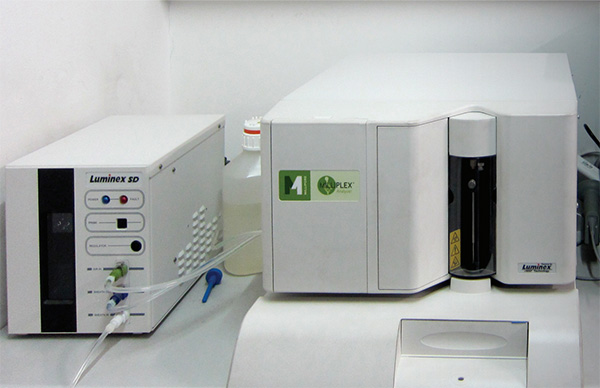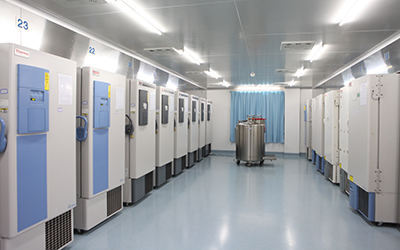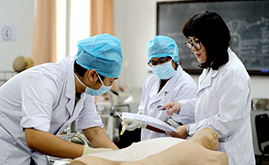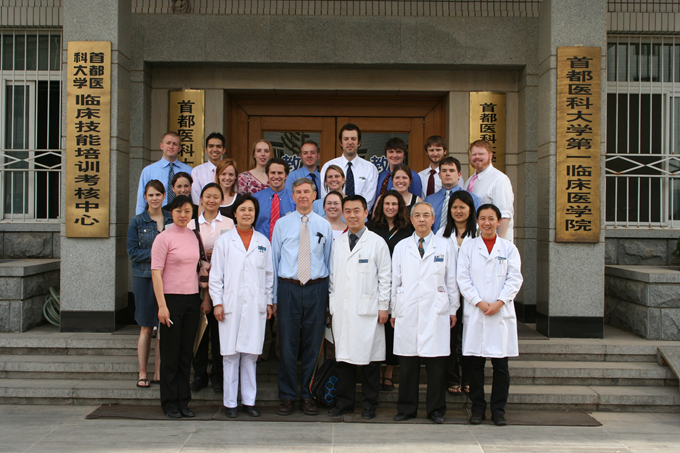Hematology Laboratory

The hematology laboratory was established in 1979. With the leadership of Professor Huaijian JIN and Ding TIAN, the laboratories of cell morphology, flow cytometry, cell culture, cytogenetics and molecular biology were gradually established. The hematology laboratory has a staff of five people, including 3 technologists-in-charge and 2 technologists, one of them has PhD degree, 2 of them have master's degree.
The laboratory of cell morphology could conduct morphological examination of peripheral blood, bone marrow and various detached cells rapidly and accurately, which provides reliable basis for the hematological system diseases or other related diseases. The laboratory of flow cytometry has a 8-color flow cytometry instrument and a 4-color flow cytometry instrument, which could analyze immunophenotype of peripheral blood, bone marrow, lymph nodes, cerebrospinal fluid, serous effusion and cellular components in various tissues sensitively and accurately. It is of great significance for the diagnosis and efficacy assessment of diseases.
The laboratory of cell culture could culture a variety of cells in vitro, such as bone marrow stem cells, DC-CIK cells, bone marrow derived mesenchymal stem cells and NK cells. It provides more treatment options for senile patients with malignant hematological diseases and refractory recurrent malignant hematological diseases.
The laboratory of cytogenetic could perform chromosome karyotype and fluorescence in situ hybridization. The cytogenetic results will contribute to evaluate prognosis of patients and provide guidance for individualized treatment, as well as monitor the changes of diseases.
The laboratory of molecular biology could detect a variety of gene alterations of hematological system diseases by molecular biology techniques, which is of great significance for clinical diagnosis, prognostic evaluation and disease monitoring. Moreover, human leukocyte antigen typing provides guarantee for allogeneic hematopoietic stem cells transplant.














